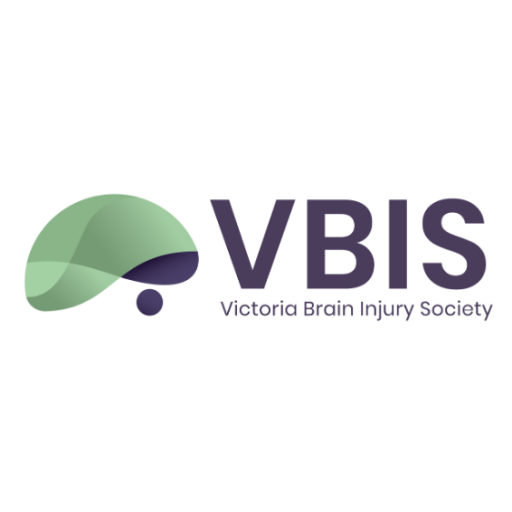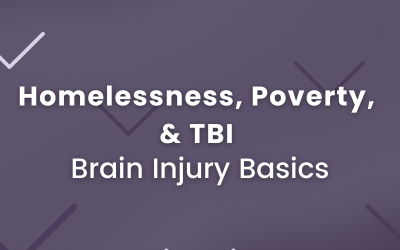Concussions are more common than many people realize. They can happen on the soccer field, during a bike ride, at work, or from something as ordinary as slipping on wet pavement. While concussions are often called “mild” traumatic brain injuries, the effects don’t always feel mild. Symptoms can be physical, emotional, cognitive, and sometimes invisible to others, which can make the experience feel isolating.
If you or someone you care about is navigating life after a concussion, you are not alone. Here in Victoria, there are supportive, knowledgeable, and community-based resources to help individuals and families understand symptoms, access treatment, and find a path toward recovery.
This guide brings together local services, support options, and practical tools to help you take the next step.
Understanding Concussions
A concussion is a type of brain injury that happens when the brain is moved quickly inside the skull. This is often from a blow, fall, or sudden acceleration. This can cause chemical changes and temporary disruption in how the brain functions.
Common symptoms include:
- Headache or pressure
- Dizziness or balance issues
- Sensitivity to light or sound
- Nausea
- Fatigue or foggy thinking
- Mood changes (irritability, sadness, anxiety)
Recovery looks different for everyone. Some people feel better in days or weeks, while others may experience ongoing symptoms, sometimes called post-concussion syndrome. If symptoms persist or begin to impact daily life, it’s essential to seek support.
First Steps After a Suspected Concussion
- Pause activity and rest.
It’s important to avoid further impacts or exertion early on. - Seek medical guidance.
A walk-in clinic, family doctor, or urgent care centre can help assess the injury. - Know when to seek emergency care.
Go to the ER if symptoms suddenly worsen, or if you notice confusion, repeated vomiting, unequal pupils, or loss of consciousness. - Rest and recover.
Modern concussion recovery encourages a balance of rest and slow re-engagement with activity, guided by what your body and brain tolerate.
Local Medical & Rehabilitation Support in Victoria
Many healthcare providers in Victoria and surrounding areas specialize in concussion recovery. Depending on your needs, this may include a:
- Family physician or nurse practitioner
- Physiotherapist with concussion training
- Occupational therapist
- Neuro-optometrist (for vision-related symptoms)
- Psychologist or mental health clinician
- Speech-language pathologist (for communication or cognitive fatigue support)
If you’re unsure where to start, your doctor can help provide referrals. The Victoria Brain Injury Society can also support with navigation and information, especially if symptoms persist and daily life is being affected.
Recovery is rarely one-size-fits-all. Building a team that understands concussion makes a meaningful difference.
Community Support & Peer Connection
Living with the effects of a concussion can make you feel invisible, especially when symptoms are hard to explain. Support from others who understand can make the journey less overwhelming.
VBIS offers:
- Peer support programs
- Family and caregiver support
- Education workshops
- One-to-one system navigation and advocacy
- Community programs that foster connection and resilience
You do not have to go through recovery alone. VBIS is here to walk alongside survivors, family members, and caregivers every step of the way.
Tools for Recovery at Home
Many people recovering from a concussion benefit from routines and pacing strategies. Consider:
- Structured rest periods to prevent overexertion
- Limit screen exposure and bright lighting if they worsen symptoms
- Light, guided exercise when cleared by a healthcare provider
- Sleep hygiene routines to support brain healing
- Journaling symptoms to identify improvement patterns or triggers
If you’re returning to school or work, it’s okay to ask for accommodations. Gradual return-to-learn and return-to-work plans are common and valid.
Prevention & Long-Term Considerations
While not all concussions can be prevented, some strategies help reduce risk:
- Wearing helmets that fit properly
- Practicing safe play in contact sports
- Making home spaces fall-safe
- Encouraging open communication about symptoms, especially for teens and athletes who may downplay the seriousness of their injury
If symptoms continue long-term, know this: Recovery can still happen, progress is possible, and supportive care can improve quality of life.
Local Resource List
| Resource | Support Offered | How to Access |
| Victoria Brain Injury Society | Peer support, education, family support, system navigation | Visit vbis.ca or call 250-598-9339 |
| Family Doctors & Walk-In Clinics | Medical assessment, referrals | Call your clinic or use medimap.ca to find local availability |
| Concussion-Trained Physiotherapists | Symptom-based movement and rehabilitation | Ask your doctor or search “Concussion Physiotherapy Victoria” |
| Neuro-Vision & Eye-Motion Rehabilitation | Help with dizziness and vision strain | Referral often recommended |
| Mental Health Support | Counselling for anxiety, depression, adjustment | Contact your existing provider or local mental health clinics |
If you would like help navigating these supports, VBIS is here to help.
You’re Not Alone. Support Is Here.
Every brain injury is unique. Every recovery is unique. Every person deserves support, dignity, and understanding along the way.
If you’re unsure where to start or what your next step is, reach out to the Victoria Brain Injury Society. We’ll help you connect with the right services, community programs, and people who truly understand.
Healing takes time, and you don’t have to journey through it alone.


